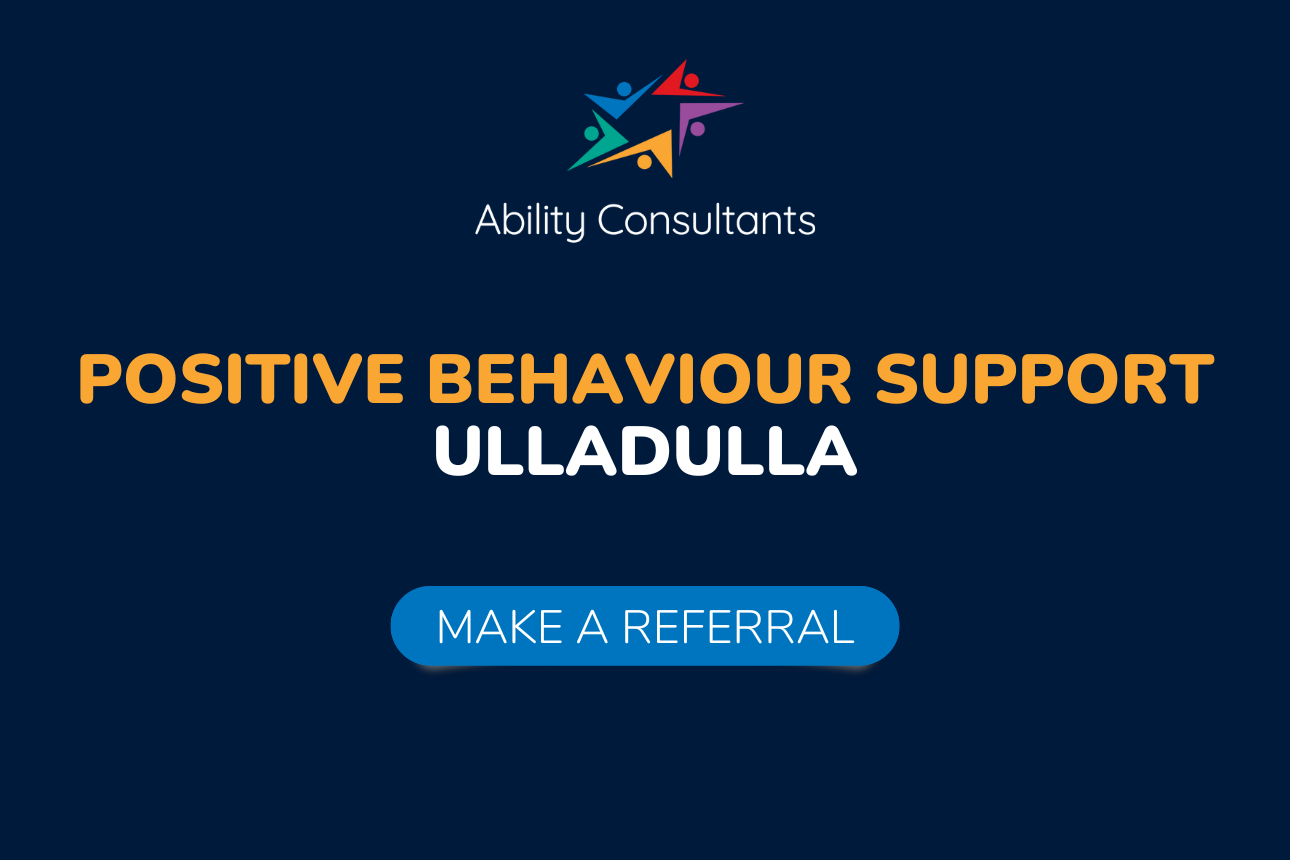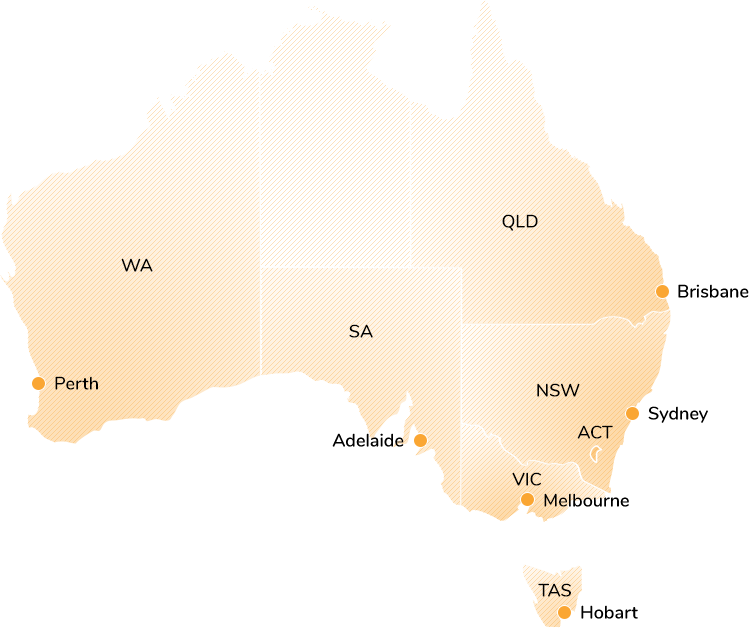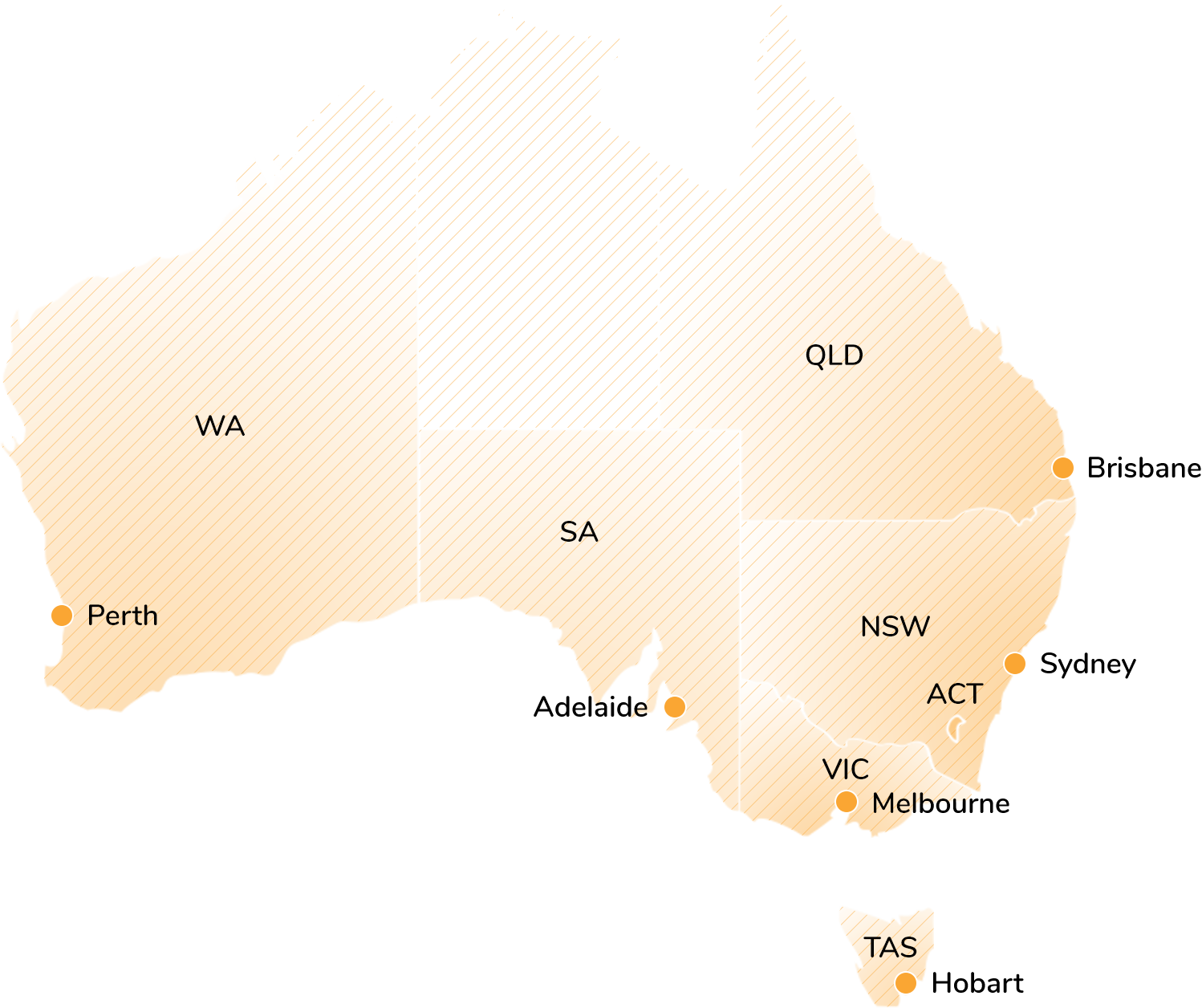Emma Fumini supports the Ulladulla community through Positive Behaviour Support

We’re on a mission to make Positive Behaviour Support easy to access around Australia, and we’re beyond excited to welcome Emma Fumini to our Ability Consultants team in Ulladulla!
Behaviour Support Practitioner in Ulladulla
Emma, welcome to the team! You live about half way between Ulladulla and Batemans Bay, what would you say is the number one highlight about where you live?
Being new to this area myself, I love the community feel and welcoming energy of the locals. We’ve got the bush meeting the beaches and it’s just a spectacular playground for all ages.
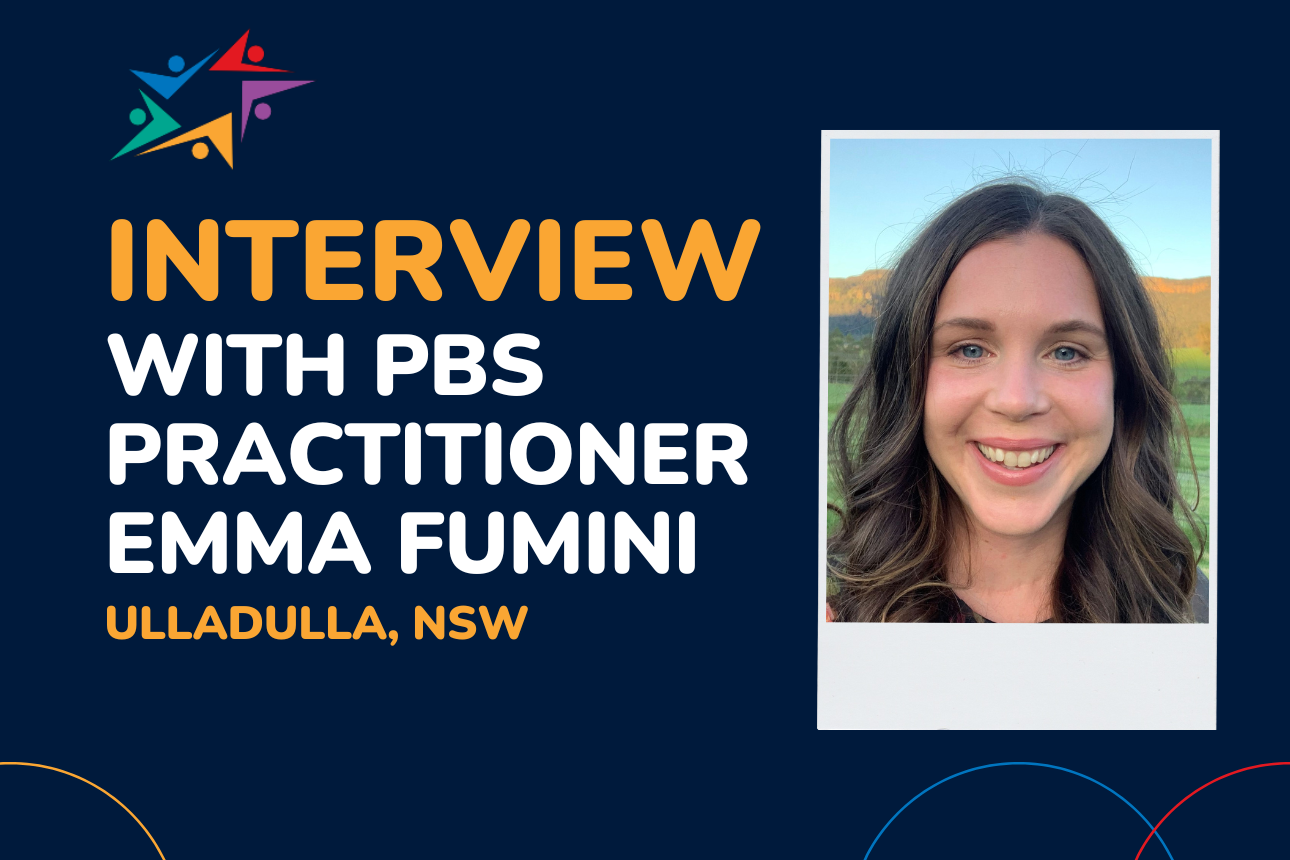
Can you tell us about your qualifications and experience?
Whilst at university studying my undergrad in psychology, I volunteered with Lifeline Australia. The training they provided as well as the experience I got from this time certainly set me on my path to better understand the needs of others.
I worked for a couple years as a teacher’s assistant in London, where I got a real buzz out of working with children and seeing the world and its challenges through their eyes. I then worked in group homes for four years in Sydney. I was a support worker and also a team leader.
The clients I worked with in these spaces were primarily living with psychosocial disabilities such as schizophrenia and trauma. I had the privilege of supporting these individuals to work towards their goals and ensure they were living life to its fullest.
I was given an opportunity to become a behaviour support practitioner in 2021 and I've been doing this work since. My experience has been broad, working with primary age children with ADHD, ODD and ASD to 70-year-old participants who are transitioning out of nursing homes and into supported independent living.
You spent four years supporting a psychosocial accommodation model, can you explain what this means?
I began as a support worker, on the floor, where I had the opportunity to support residents with every aspect of their daily living. I would meet the client where they were at on the day and ensure my support encouraged autonomy and independence where possible.
We would make meals, do personal care, plan programs and activities, support with medications and implement behaviour support plans. We had 10 residents, 8 of whom lived with a schizoid disorder and most of which also had an intellectual disability. I learnt a huge amount from each participant I supported and I found a real drive to better understand behaviours and implement effective preventative strategies.
What influenced your decision to work with people with disability and provide Positive Behaviour Support?
I’ve always been interested in psychology and love learning about the ways humans navigate this world. I was able to apply this interest in the disability field, when I sort of stumbled into my job at the group home. A friend knew of a job vacancy and suggested it to me, and as I gained experience and trained with different behaviour support practitioners, I knew that I wanted to work towards this role.
Positive Behaviour Support in Ulladulla
What is Positive Behaviour Support?
Positive Behaviour Support is something you might not have heard of before. Here’s a great video by my colleague, Belinda Thurlow. She explains what Positive Behaviour Support is and how it can help you.
Who can benefit from Positive Behaviour Support (PBS) and what are examples of how PBS can help?
Positive Behaviour Support can be a useful approach for a broad range of individuals who are using behaviours of concern to get their needs met and PBS is also beneficial for their support networks. Examples include:
- Children with autism who require strategies to support regulation
- Children with ADHD who require support with planning and engagement with their schooling
- Individuals living in group homes who require increased control in their day
- Persons living in aged care or living with dementia who require supports to keep them safe
- Support workers or teachers who are looking to build their understanding of someone they support
- An individual who is using physical or verbal aggression towards their support team.
A restrictive practice means any practice or intervention that has the effect of restricting the rights or freedom of movement of a person with disability. PBS helps to reduce the use of these practices and better understand the needs of our clients.
A person with a disability might also be supported by other professionals, how do you work together to ensure the best outcome for your clients?
The best approach is one that includes a person’s whole support network, including the individual themselves. Often we work alongside occupational therapists and speech therapists, treating practitioners, teachers and psychologists.
Often we will have meetings via Zoom, where we discuss goals and strategies to ensure everyone is playing their part towards positive outcomes for the client.
There is always something new to learn from one another and a person’s behaviours are so entwined with their communication and daily functioning that services are best provided when all brains involved are put together.
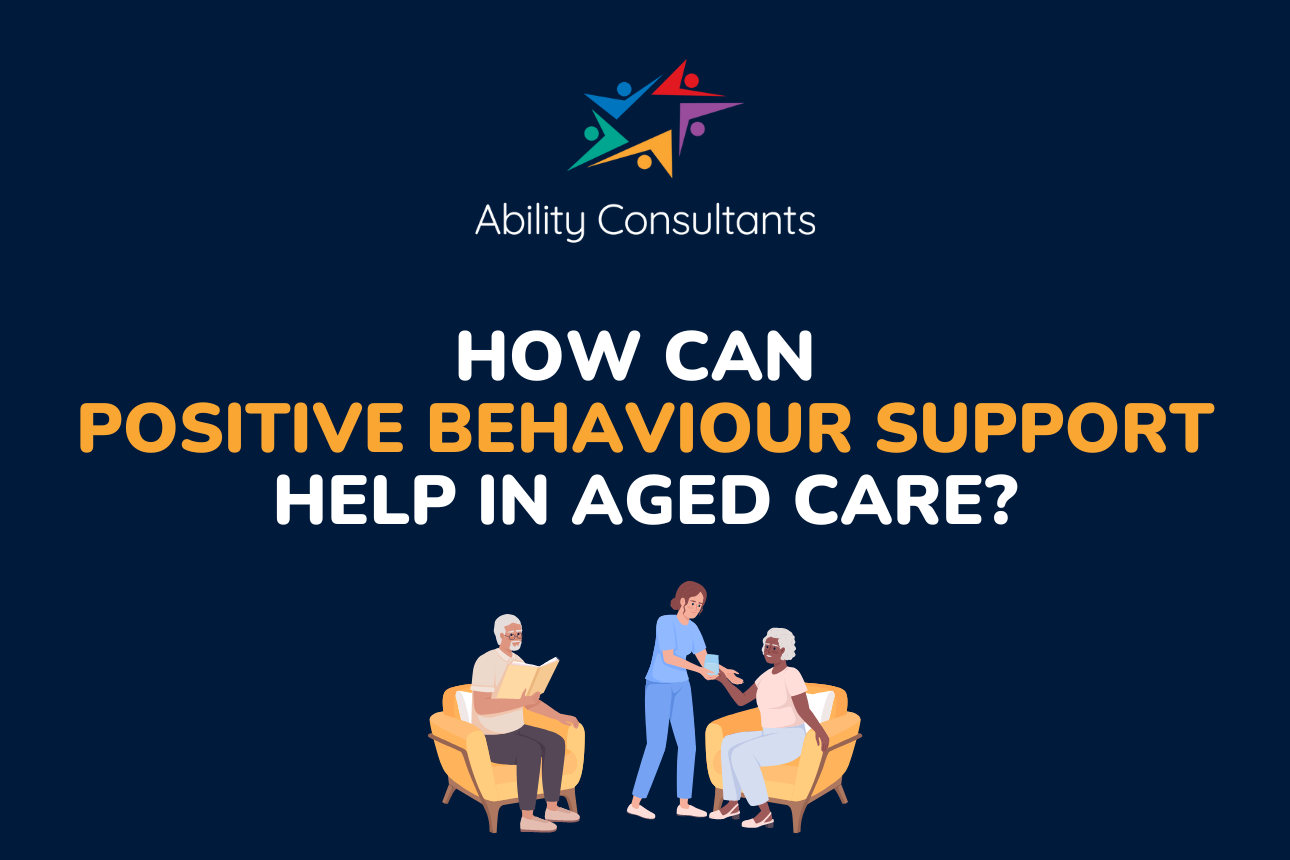
Positive Behaviour Support in Aged Care
Can you give us an example of how Positive Behaviour Support can assist in aged care?
There are many frustrations that can arise for a person as they age. Physical discomfort, cognitive decline, loss of control and independence. If an individual is unable to communicate their needs as these changes occur, behaviours can present.
This can lead to behaviours such as hitting, refusing food, soiling or medication refusal. As a behaviour support practitioner, my role is to understand the functions of these behaviours for the individual and implement strategies to not only reduce the behaviours but improve quality of life in general.
Some changes that I’ve found have improved the quality of life for people and in turn reduced behaviours have included:
- Ensuring they have access to activities and items that they enjoy
- Providing sensory stimulation by using projectors or deep pressure massage
- Ensuring that someone is given opportunities to make choices in their day
- Using visuals to support someone's memory and ensure they know what is going on in their day
- Doing activities WITH someone, rather than FOR them
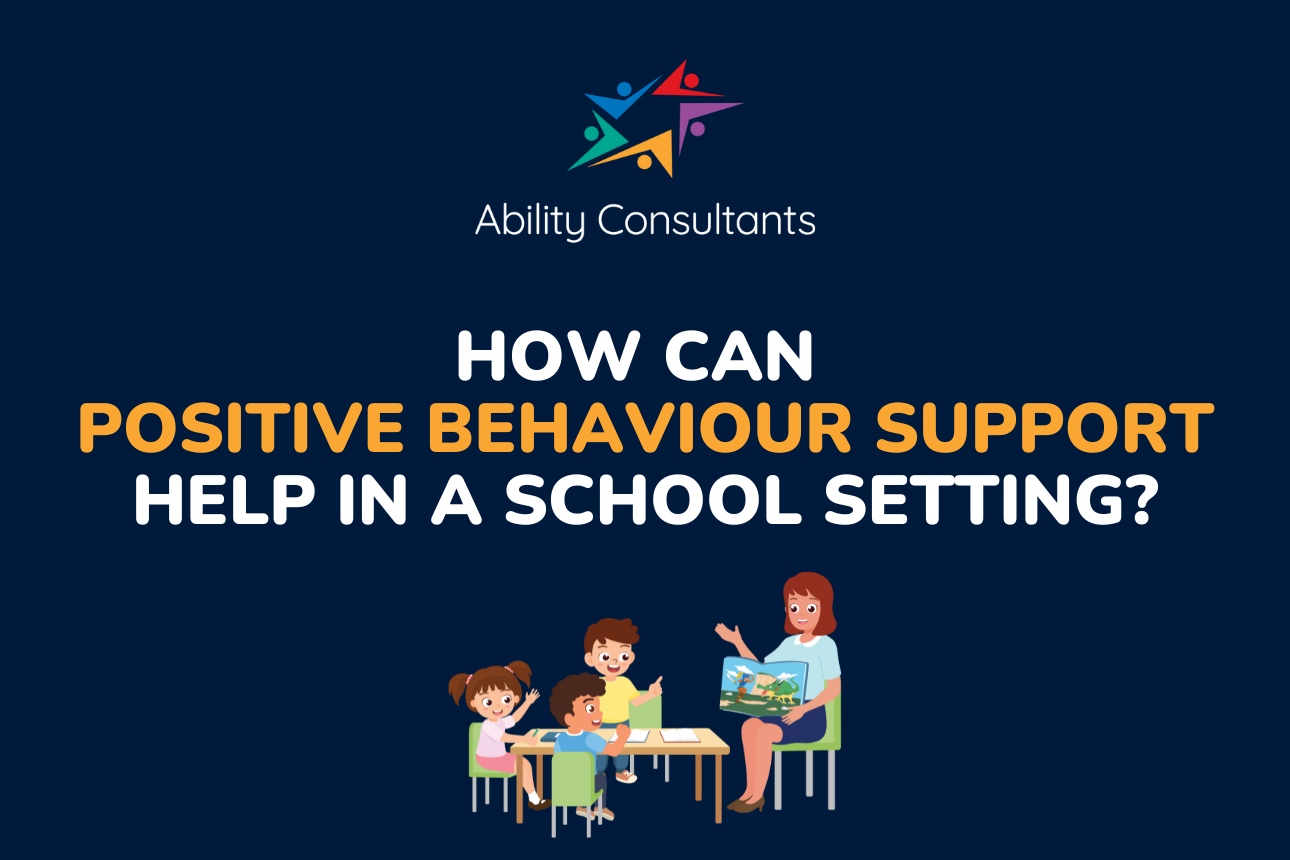
Positive Behaviour Support in Schools
You’ve also worked in a school setting. How can Positive Behaviour Support help children and young people in a school environment?
Often children can be stuck with labels of being “naughty” or “bad” when they have behaviours that impact themselves or the running of the classroom.
In a school setting Positive Behaviour Support works to better understand the needs of children, determine what they are actually communicating through the behaviours and then skill build around alternative behaviours.
Positive Behaviour Support can help a child feel heard and seen and provide valuable insight on how to provide a school environment that a child will thrive in.
Some areas of support include:
- Supporting transitions
- Providing structure and predictability in the day
- Allowing breaks and a space to regulate
- Emotional regulation strategies
- Training for teachers and SLSO’s.
Positive Behaviour Support and NDIS funding
Ability Consultants is a Registered NDIS Provider and provides support in Ulladulla and throughout Australia.
Which types of NDIS funding can NDIS Participants use for Positive Behaviour Support?
Positive Behaviour Support is primarily accessed with Improved Relationships funding. This will usually cover the development of a behaviour support plan, training and specialised behaviour support services. Other funding options that NDIS Participants can use include Core funding and other types of Capacity Building funds.
What if a person doesn’t have funding for Positive Behaviour Support, how can you help?
We can support an individual to access their required amount of funding by writing a report or a change of circumstances letter that can be submitted to the NDIS. Alternatively, some people pay privately to access Positive Behaviour Support.
Find out more about Positive Behaviour Support in Ulladulla
Which areas do you work in at Shoalhaven and Eurobodalla?
At the moment I cover towns from Batemans Bay to Nowra. I can drive out to clients homes or to their day programs or can provide consultations via telePBS.
What are the next steps if someone would like to know more or make a referral for Positive Behaviour Support in the Shoalhaven region?
Ability Consultants has a great web page where you can make a referral or alternatively you can contact our intake team who are always happy to help at [email protected].



